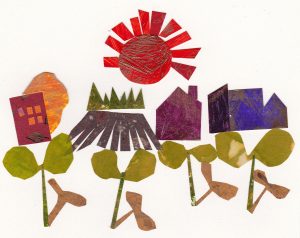 In cities around the United States, people are looking to urban farms for a wide range of benefits. Urban farms provide fresh food for neighborhood residents, and for stores and restaurants. They help support healthy eating habits, and a place for kids to learn and play. They are sites for learning job skills, getting in touch with nature, even composting organic waste.
In cities around the United States, people are looking to urban farms for a wide range of benefits. Urban farms provide fresh food for neighborhood residents, and for stores and restaurants. They help support healthy eating habits, and a place for kids to learn and play. They are sites for learning job skills, getting in touch with nature, even composting organic waste.
This section of the CLT Center's website dives into the details of securing land for urban agriculture, providing a range of tenure options that include a new proposal for the use of the central server variation of the community land trust model. The content was developed by Nate Ela and Greg Rosenberg as part of a research project at the University of Wisconsin-Madison, which was funded by the United States Department of Agriculture (USDA).
Overview
Increasingly, people also see urban farms as a possible engine for economic development. They can provide a source of income for individual farmers, and the raw materials for companies that create value-added products. But farming is hard work, and not everyone will have the combination of skills, passion, and investment necessary to make it a full-time job. Most rural farming households rely on a mix of farm and off-farm income, and many urban farmers may ultimately do the same. If many of the musicians and artists who contribute to a city’s vibrance and appeal rely on day jobs, the urban growers who help feed its food system may hold evening jobs, or off-season gigs.
Whatever the benefits, and no matter the business plan, nothing will happen without land on which to grow crops. Any realistic economic framework for urban farming has to account for not only the value that urban farming will create, but also the costs that it is able to bear.
Land is a key factor in this equation. A wide range of people – from individual growers to the mentors who train them, and from local foundation officials to university researchers, urban planners, and policy makers – have been grappling with questions related to land tenure for urban farming. What models for land ownership and access can best support planning for and investment in urban farms? What models allocate scarce resources not only efficiently, but in ways that promote equity and engagement with communities that will be urban farmers’ neighbors and customers? We attempt to dig into these these questions, focusing primarily on land tenure models that can offer urban growers free and low-cost land, and which hold the most promise for sustainable growth in the urban farming sector.
